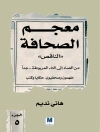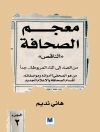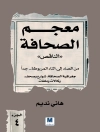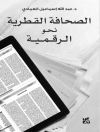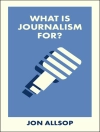Americans of all political persuasions fear that “free speech” is under attack. This may seem strange at a time when legal protections for free expression remain strong and overt government censorship minimal. Yet a range of political, economic, social, and technological developments have raised profound challenges for how we manage speech. New threats to political discourse are mounting—from the rise of authoritarian populism and national security secrecy to the decline of print journalism and public trust in experts to the “fake news, ” trolling, and increasingly subtle modes of surveillance made possible by digital technologies.
The Perilous Public Square brings together leading thinkers to identify and investigate today’s multifaceted threats to free expression. They go beyond the campus and the courthouse to pinpoint key structural changes in the means of mass communication and forms of global capitalism. Beginning with Tim Wu’s inquiry into whether the First Amendment is obsolete, Matthew Connelly, Jack Goldsmith, Kate Klonick, Frederick Schauer, Olivier Sylvain, and Heather Whitney explore ways to address these dangers and preserve the essential features of a healthy democracy. Their conversations with other leading thinkers, including Danielle Keats Citron, Jelani Cobb, Frank Pasquale, Geoffrey R. Stone, Rebecca Tushnet, and Kirsten Weld, cross the disciplinary boundaries of First Amendment law, internet law, media policy, journalism, legal history, and legal theory, offering fresh perspectives on fortifying the speech system and reinvigorating the public square.
Jadual kandungan
Introduction, by David E. Pozen
1. Is the First Amendment Obsolete?, by Tim Wu
Reflections on Whether the First Amendment Is Obsolete, by Geoffrey R. Stone
Not Waving but Drowning: Saving the Audience from the Floods, by Rebecca Tushnet
2. From the Heckler’s Veto to the Provocateur’s Privilege, by David E. Pozen
The Hostile Audience Revisited, by Frederick Schauer
Unsafe Spaces, by Jelani Cobb
Heading Off the Hostile Audience, by Mark Edmundson
Costing Out Campus Speaker Restrictions, by Suzanne B. Goldberg
Policing, Protesting, and the Insignificance of Hostile Audiences, by Rachel A. Harmon
3. Straining (Analogies) to Make Sense of the First Amendment in Cyberspace, by David E. Pozen
Search Engines, Social Media, and the Editorial Analogy, by Heather Whitney
Of Course the First Amendment Protects Google and Facebook (and It’s Not a Close Question), by Eric Goldman
The Problem Isn’t the Use of Analogies but the Analogies Courts Use, by Genevieve Lakier
Preventing a Posthuman Law of Freedom of Expression, by Frank Pasquale
4. Intermediary Immunity and Discriminatory Designs, by David E. Pozen
Discriminatory Designs on User Data, by Olivier Sylvain
Section 230’s Challenge to Civil Rights and Civil Liberties, by Danielle Keats Citron
To Err Is Platform, by James Grimmelmann
Toward a Clearer Conversation About Platform Liability, by Daphne Keller
5. The De-Americanization of Internet Freedom, by David E. Pozen
The Failure of Internet Freedom, by Jack Goldsmith
The Limits of Supply-Side Internet Freedom, by David Kaye
Internet Freedom Without Imperialism, by Nani Jansen Reventlow and Jonathan Mc Cully
6. Crisis in the Archives, by David E. Pozen
State Secrecy, Archival Negligence, and the End of History as We Know It, by Matthew Connelly
A Response from the National Archives, by David S. Ferriero
Rescuing History (and Accountability) from Secrecy, by Elizabeth Goitein
Archiving as Politics in the National Security State, by Kirsten Weld
7. Authoritarian Constitutionalism in Facebookland, by David E. Pozen
Facebook v. Sullivan, by Kate Klonick
Meet the New Governors, Same as the Old Governors, by Enrique Armijo
Newsworthiness and the Search for Norms, by Amy Gajda
Profits v. Principles, by Sarah C. Haan
Contributors
Index
Mengenai Pengarang
David E. Pozen is Charles Keller Beekman Professor of Law at Columbia Law School and served as the inaugural visiting scholar at the Knight First Amendment Institute. He is coeditor of
Troubling Transparency: The History and Future of Freedom of Information (Columbia, 2018). In 2019, the American Law Institute awarded Pozen its Early Career Scholars Medal.


